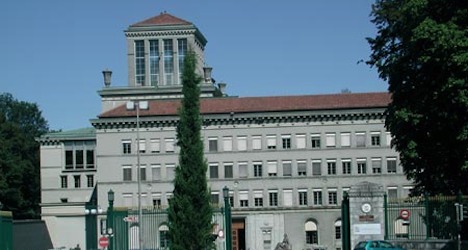The WTO previously had forecast that trade would expand by 4.5 percent in 2014, up from an estimated rate of 2.1 percent in 2013.
So the latest forecast points to substantially more than a doubling of the growth achieved last year.
Trade is a key measure of the health of the global economy which it both stimulates and reflects.
Asia will continue to fuel growth rates, the WTO said, although China's exceptionally strong expansion is slowing.
In addition, Europe and North America's recovery is also set to be a key driver on both the import and export fronts.
"For the last two years trade growth has been sluggish. Looking ahead, if GDP (gross domestic product) forecasts hold true, we expect a broad-based but modest upturn in 2014, and further consolidation of this growth in 2015," WTO chief Roberto Azevedo told reporters.
The WTO predicted that trade growth would pick up pace next year, reaching 5.3 percent.
"Prospects for world trade and output in 2014 and 2015 are better than they have been for some time, but leading economies remain fragile, including some of the most dynamic developing countries that until recently were propping up demand," the WTO said in a statement.
"Downside risks to trade abound, but significant upside potential also exists, as the US economy seems to be gaining momentum and the European Union appears to have turned a corner," the organization said.
"At the same time, developing economies have slowed appreciably, for a variety of reasons both internal and external," it said.
"Which of these forces is stronger may determine how world trade evolves over the next one to two years."
WTO economists noted that a growth rate of 5.3 percent in 2015 would bring trade growth back to its 20-year average.
For the past two years, growth has averaged only 2.2 percent.
WTO economists said that the 2014 forecast was based on an assumption that global GDP would expand by three percent.
"Risks to the trade forecast are still mostly on the downside, but there is some upside potential, particularly since trade in developed economies is starting from such a low base," the WTO said.
"However, volatility is likely to be a defining feature of 2014 as monetary policy in developed economies becomes less accommodative," it said.
Risks in developing economies
The WTO said that risks had receded in Europe thanks to an easing of the eurozone crisis, and in the United States owing to the easing of brinkmanship over budget limits and tax policy between the Obama administration and the Republicans which led to last year's government shutdown.
Concerns in developing economies include large current account deficits in countries such as India and Turkey, currency crises in some countries, including Argentina, overinvestment in productive capacity, and rebalancing economies to rely more on domestic consumption and less on exports.
The WTO also pointed to geopolitical risks, notably conflicts in the Middle East, Asia and Ukraine, which it said could provoke higher energy prices and disrupt trade flows if they escalate.
The 158 economies which make up the WTO set trade rules among themselves in an attempt to ensure a level playing field and spur growth by opening markets and removing trade barriers, including subsidies, excessive taxes and regulations.
Created in 1995, the WTO launched its Doha Round of trade liberalization talks in 2001 with the stated aim of underpinning development in poorer nations.
The talks repeatedly faltered in the face of obstacles set in particular by China, the EU, India and the United States, but negotiators last December struck a partial deal to cut trade costs by slashing red tape in customs services.
Azevedo urged governments to build on that modest breakthrough.
"It's clear that trade is going to improve as the world economy improves.
But I know that just waiting for an automatic increase in trade will not be enough for WTO members," he said.



 Please whitelist us to continue reading.
Please whitelist us to continue reading.
Member comments